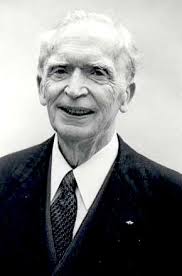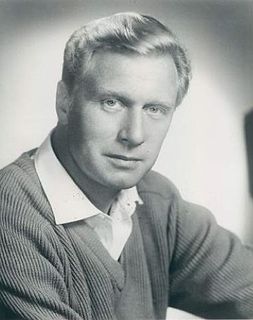A Quote by Sri Aurobindo
It is true that the subliminal in man is the largest part of his nature and has in it the secret of the unseeen dynamisms which explain his surface activities. But the lower vital subconscious which is all that this psycho-analysis of Freud seems to know, - and of that it knows only a few ill-lit corners, - is no more than a restricted and very inferior portion of the subliminal whole... to begin by opening up the lower subconscious, risking to raise up all that is foul or obscure in it, is to go out of one's way to invite trouble.
Quote Topics
Activities
Analysis
Begin
Corners
Explain
Few
Foul
Go
His
Ill
Inferior
Invite
Know
Knows
Largest
Lit
Lower
Man
More
Nature
Obscure
Only
Opening
Opening Up
Out
Part
Portion
Psycho
Raise
Raise Up
Restricted
Risking
Secret
Seems
Subconscious
Subliminal
Surface
Than
The Secret Of
Trouble
True
Up
Very
Vital
Way
Which
Whole
Related Quotes
Reason cannot desire for man any condition other than that in which not only every individual enjoys the most absolute, unbounded freedom to develop himself out of himself, in true individuality, but in which physical nature, as well, need receive no other shaping by human hands than that which is given to her voluntarily by each individual, according to the measure of his wants and his inclinations, restricted only by the limits of his energy and his rights.
I never consciously place symbolism in my writing. That would be a self-conscious exercise and self-consciousness is defeating to any creative act. Better to get the subconscious to do the work for you, and get out of the way. The best symbolism is always unsuspected and natural. During a lifetime, one saves up information which collects itself around centers in the mind; these automatically become symbols on a subliminal level and need only be summoned in the heat of writing.
Which class is happiest, the rich, the middle class or the poor? A very successful executive of a large organization touches upon this vital subject in a long letter to all his salesmen. He uses as his text a passage from Robinson Crusoe which included this: ""My Father bid me observe it, and I should always find that the calamities of life were shared among the upper and lower part of mankind; but that the middle station had the fewest disasters, and were not exposed to so many vicissitudes as the higher or lower part of mankind.
Personally, I’ve gotten so that I now use a kind of two-track analysis. First, what are the factors that really govern the interests involved, rationally considered? And second, what are the subconscious influences where the brain at a subconscious level is automatically conclusions in various ways — which, by and large, are useful — but which often malfunction? One approach is rationality… And the other is to evaluate the psychological factors that cause subconscious conclusions — many of which are wrong.
A good soldier is a blind, heartless, soulless, murderous machine. He is not a man. His is not a brute, for brutes kill only in self defense. All that is human in him, all that is divine in him, all that constitutes the man has been sworn away when he took the enlistment roll. His mind, his conscience, aye, his very soul, are in the keeping of his officer. No man can fall lower than a soldier-it is a depth beneath which we cannot go.
The first thing to remember is the dual nature of your mind. The subconscious mind is constantly amenable to the power of suggestion; furthermore the subconscious mind has complete control of the functions, conditions, and sensations of your body. Trust the subconscious mind to heal you. It made your body, and it knows all of its processes and functions. It knows much more than your conscious mind about healing and restoring you to perfect balance.
As you sow in your subconscious mind, so shall you reap in your body and environment. Whatever your conscious mind assumes and believes to be true, your subconscious mind will accept and bring to pass. Whatever you habitually think sinks into the subconscious. The subconscious is the seat of the emotions and is a creative mind. Once subconscious accepts an idea, it begins to execute it. Whatever you feel is true, your subconscious will accept and bring forth into experience.
The man who cannot listen to an argument which opposes his views either has a weak position or is a weak defender of it. No opinion that cannot stand discussion or criticism is worth holding. And it has been wisely said that the man who knows only half of any question is worse off than the man who knows nothing of it. He is not only one-sided but his partisanship soon turns him into an intolerant and a fanatic. In general it is true that nothing which cannot stand up under discussion or criticism is worth defending.
Take the happiest man, the one most envied by the world, and in nine cases out of ten his inmost consciousness is one of failure. Either his ideals in the line of his achievements are pitched far higher than the achievements themselves, or else he has secret ideals of which the world knows nothing, and in regard to which he inwardly knows himself to be found wanting.
Psycho-analysis has taught us that a boy's earliest choice of objects for his love is incestuous and that those objects are forbidden ones - his mother and his sister. We have learnt, too, the manner in which, as he grows up, he liberates himself from this incestuous attraction. A neurotic, on the other hand, invariably exhibits some degree of psychical infantilism. He has either failed to get free from the psychosexual conditions that prevailed in his childhood or he has returned to them - two possibilities which may be summed up as developmental inhibition and regression.








































